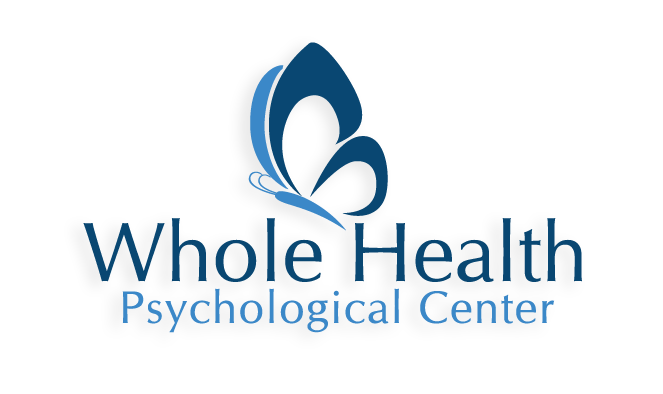 We’ve heard and read A LOT about the connection between neurotransmitters (NTs) and/or hormones and our mental wellbeing (think dopamine, serotonin, oxytocin, and the likes), starting as early as basic science class in school to conversations in adult life. But this is all for good reason because the relationships are very well-studied and understanding this can aid us in maintaining or promoting our wellbeing. Here’s a simple breakdown.
We’ve heard and read A LOT about the connection between neurotransmitters (NTs) and/or hormones and our mental wellbeing (think dopamine, serotonin, oxytocin, and the likes), starting as early as basic science class in school to conversations in adult life. But this is all for good reason because the relationships are very well-studied and understanding this can aid us in maintaining or promoting our wellbeing. Here’s a simple breakdown.
Neurotransmitters are chemicals in our bodies that are used to carry messages from nerve to nerve. Our bodies simply cannot function without them, and we have learned that they are not only crucial to us so that we can move our body, feel sensations, and keep our heart beating, but are also crucial for our mental health wellbeing.
Hormones are also chemicals that help us and our bodies function by carrying messages to our different organs, muscles, and tissues. Like NTs, hormones are also closely associated with our mental health and fluctuations or deficiencies in certain hormones have been linked to mental health disorders and increased psychological distress.
Significant Neurotransmitters and Hormones Linked to Mental Health
- Serotonin- often referred to as “the mood stabilizer,” this powerful NT helps regulate our mood, sleep, and appetite. Serotonin deficiency or imbalances may lead to depression and/or anxiety.
- Dopamine- popularly known as “the reward chemical,” is primarily associated with the reward system, which is comprised of motivation, determination, and the ability to experience pleasure. This NT also impacts learning and aids in attention, focus, memory, and movement. Therefore, dysregulated levels of dopamine may result in low self- esteem, lack of motivation and energy, difficulty focusing, motor control difficulties, and depression and/or anxiety.
- GABA- also referred to as the “calm-you-down-neurotransmitter), GABA plays a significant role in anxiety. Therefore, low levels of GABA may be experienced as increased fear, stress, and anxiety.
- Norepinephrine- this one works both as a NT and hormone in our bodies and is important for attention, focus, learning, sleep, and plays a role in stabilizing our mood. Imbalanced levels of norepinephrine can play a role in mood disorders (anxiety, depression, and bipolar) and have been implicated in posttraumatic stress disorder.
- Endorphins- very commonly known as the body’s “natural pain killer,” these chemicals are naturally produced in response to pleasurable and/or painful activities. Endorphin deficiency can result in anxiety, depression, mood fluctuations, increased oain, and impulsive behavior.
- Oxytocin- also known as “the love hormone,” is a mighty chemical that is linked to feelings of trust, sexual arousal, and social bonding and attachment. Consequently, low levels of oxytocin are typically associated with feeling lonely, stressed, and anxious, as well as insomnia and depression.
 How to Naturally Increase these Mighty Chemicals
How to Naturally Increase these Mighty Chemicals
- Serotonin- exercise, go for a run, take a walk outdoors in nature, take a cold shower, go for a swim, get some sunlight, meditate, and eat a healthy balanced diet and eat foods high in Tryptophan with carbohydrates (e.g., turkey sandwich, salmon with brown rice, oatmeal with nuts).
- Dopamine- meditate, have daily to-do-lists as well as short-term and long-term goals, complete tasks and celebrate even the little wins, exercise regularly, channel your creativity, and eat foods rich in L-Tyrosine.
- GABA- eat foods high in glutamic acid/glutamate (e.g., meats, fish, eggs, mushrooms, tomatoes, broccoli, brown rice, walnuts, cheese), avoid sugar and junk foods, exercise regularly, and practice meditation and yoga.
- Norepinephrine- exercise regularly, eat foods rich in protein and Tyrosine (e.g., almonds, bananas, avocados, pumpkin and sesame seeds, dairy), and take cold showers or sit in a sauna.
- Endorphins- do something creative (e.g., make music or art), engage in moderate- intensity exercise and stretch, meditate, use euphoric essential oils (rosemary, citrus flavors, frankincense), laugh with others or watch comedies, perform acts of kindness, and take a hot bath.
- Oxytocin- increase physical touch (e.g., get a massage or cuddle a loved one), socialize and spend time with others, listen to music, do yoga, meditate, and cook and share a meal with a loved one.
By: Rooha Rowhani, Psy.D.

